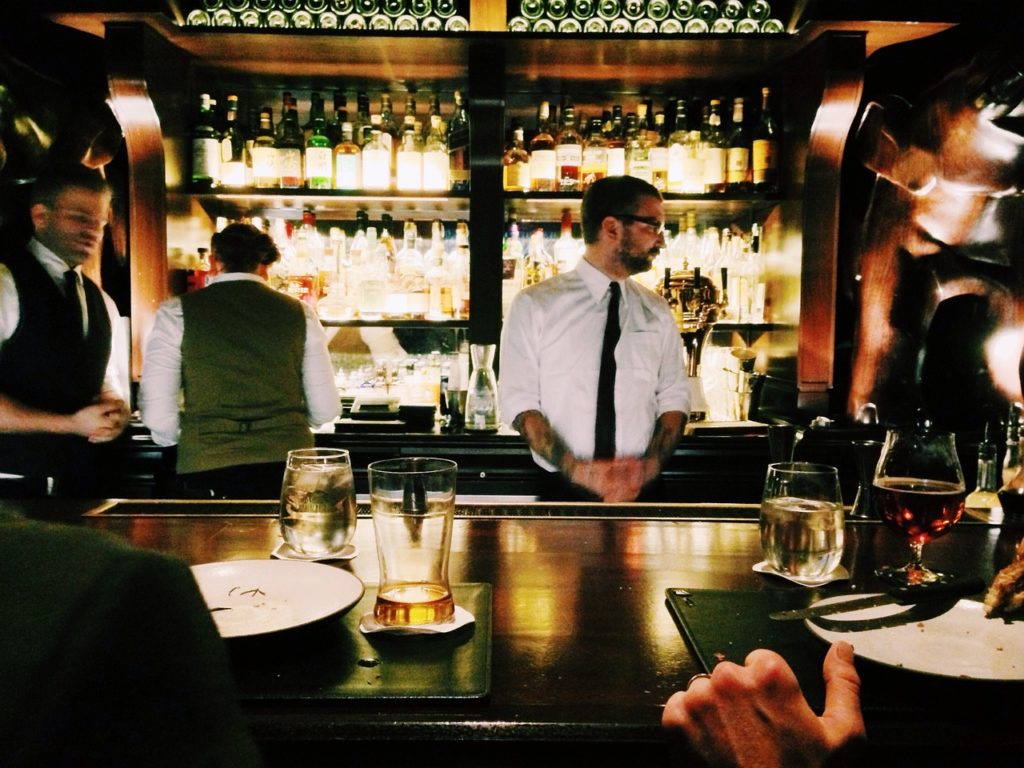Most of us can recall, on at least one occasion, where their restaurant server or bartender was intoxicated during their shift. As surprising as this is, it is even more shocking when other staff and even management ignore the situation. Sadly, this scenario is common in the hospitality industry. Substance abuse in the restaurant and bar industry is rampant. In fact, it is quite normal for employees to engage in drug and alcohol use, while at work.
Why are hospitality workers at a higher risk?
Restaurant and bar workers have an experience set that makes them a unique population. This type of job requires being around drunk customers, serving alcohol. Hours can be long and often extend into the wee hours of the morning. Restaurant workers often spend time out together, visiting bars and nightclubs after work, drinking and using drugs together. It is easy for someone in this field to get caught up in the lifestyle where alcohol and drug use is an acceptable norm. For some, this can lead to serious addiction.
Hospitality workers ranked #1 for substance abuse
In a recent study, Substance Abuse and Mental Health Services Administration (SAMHSA), indicated that restaurant and hotel workers are ranked number one among the top ten most addiction-prone careers. More than 19% of employees report illicit drug use or alcohol abuse within the past 30 days. The SAMHSA study found that accommodations and food services industry workers have the highest rates of illegal drug use as compared to other industries.1
Little has been done to prevent or reduce substance abuse in the restaurant and bar industry
25 years of research shows how common the problem of addiction is within the hospitality industry. However, little has been done to address the issue. Solutions are focused on eliminating the problem pre-hire or are reactionary in nature such as termination of employment. Typically, the employee is fired after they have crossed “the limit” set by the owner. Management is rarely proactive by offering addiction information or treatment before the problem reaches the need for termination. Often, individuals jump from job to job because it isn’t hard to do in this industry. A new job doesn’t change the addiction problem. The worker is still addicted, and a new job may make treatment a less available option. With increased access to drugs and alcohol and the normalized culture, the need is even more urgent for a specific program that addresses this industry’s unique needs. By providing prevention efforts, establishing a culture and environment of personal accountability, and offering solutions for problems related to alcohol and drug use, it can be possible for these workers to successfully return to their careers in the hospitality industry without being at risk of returning to the lifestyle.
How do we resolve this problem?
The Arbor Behavioral Healthcare has partnered with an organization that aims to do just that. Hotel and Restaurant/Bar Recovery (HaRBR) seeks to not only provide employee assistance but to change the hospitality industry’s overall acceptance and allowance of substance abuse. HaRBR provides proactive education and prevention efforts to increase workplace awareness. It assists companies in creating new policies that change workplace norms. It also provides assessment, intervention, treatment, and aftercare for impaired employees. HaRBR goes one step further and provides funding resources for those individuals needing assistance. HaRBR believes in a humanistic approach. By encompassing this strategy, it cultivates a win/win for both employee and employer: a rejuvenated employee who is thankful to the employer for caring enough to help and management who actually practice the art of human resource management. Sandy Hollier References: 1 https://www.samhsa.gov/data/sites/default/files/report_1959/ShortReport-1959.html

